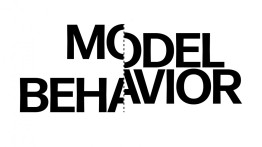Model Behavior Exhibition

The term “model behavior” is commonly used to describe good social skills. An exhibition open at The Cooper Union from October 4-November 18, 2022 titled Model Behavior, curated by the Anyone Corporation, turns that concept on its head to investigate how models themselves behave. Conceptual models, study models, section models, and presentation models are givens in the practice and production of architecture, but the role of the architectural model in projecting or eliciting social behavior is seldom considered. At a moment when models in other disciplines—such as climate change and COVID models—are clearly affecting social behavior, how do architectural models reflect those changes or contribute to changing behaviors? This exhibition provides an opportunity for individuals to rethink the potentials of the architectural model, both within the discipline and in its relationships to the myriad models that shape contemporary culture.
Exhibited in the colonnade and first floor of Cooper Union’s historic Foundation Building, Model Behavior features more than 70 works and objects by 45 artists and architects including School of Architecture graduates Stan Allen AR'81, David Gersten AR'91, Jürgen Mayer AR'91, Jesse Reiser AR'81, and Nanako Umemoto AR'83.
To read more about the exhibition, please click here and here.




